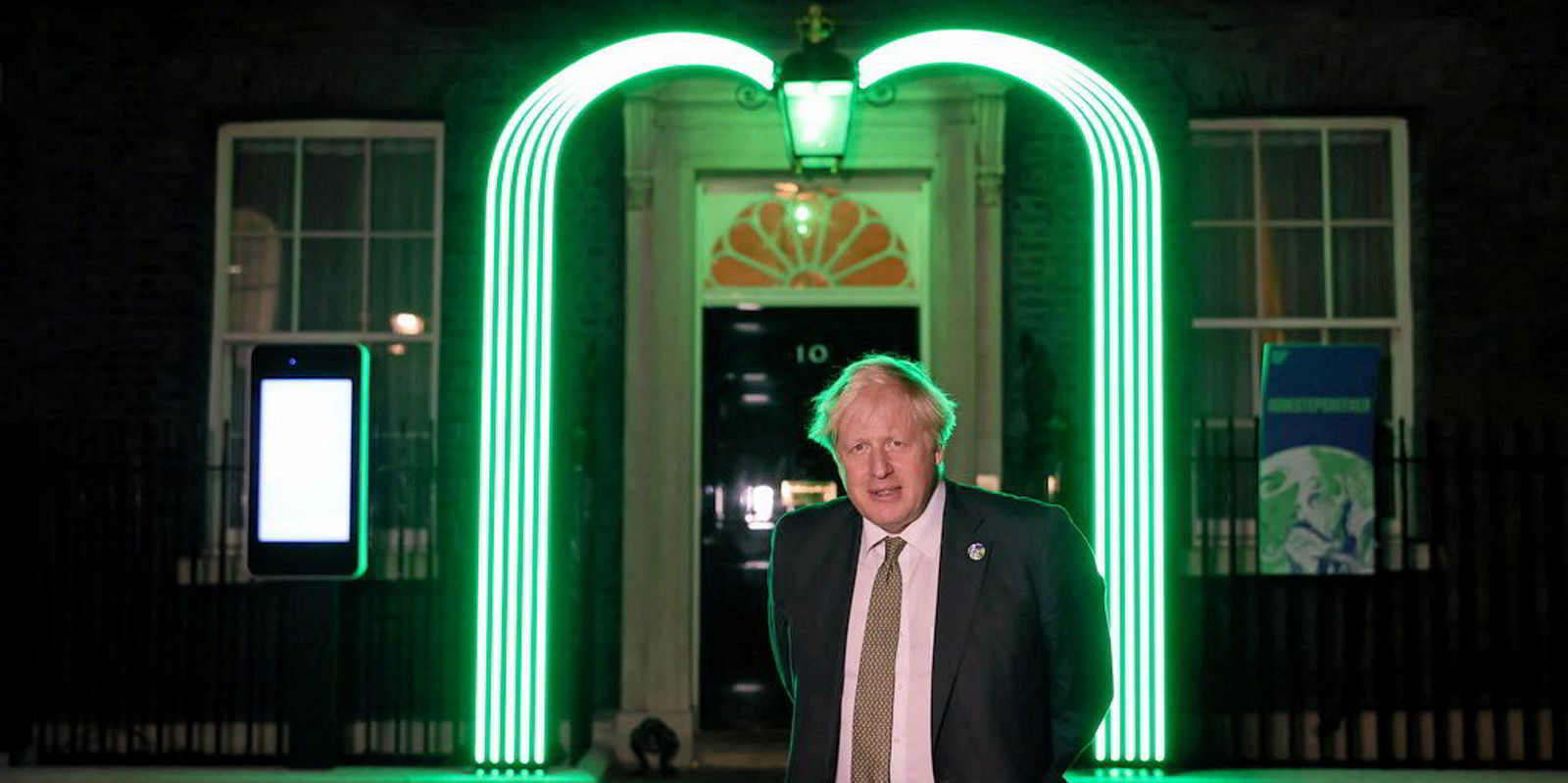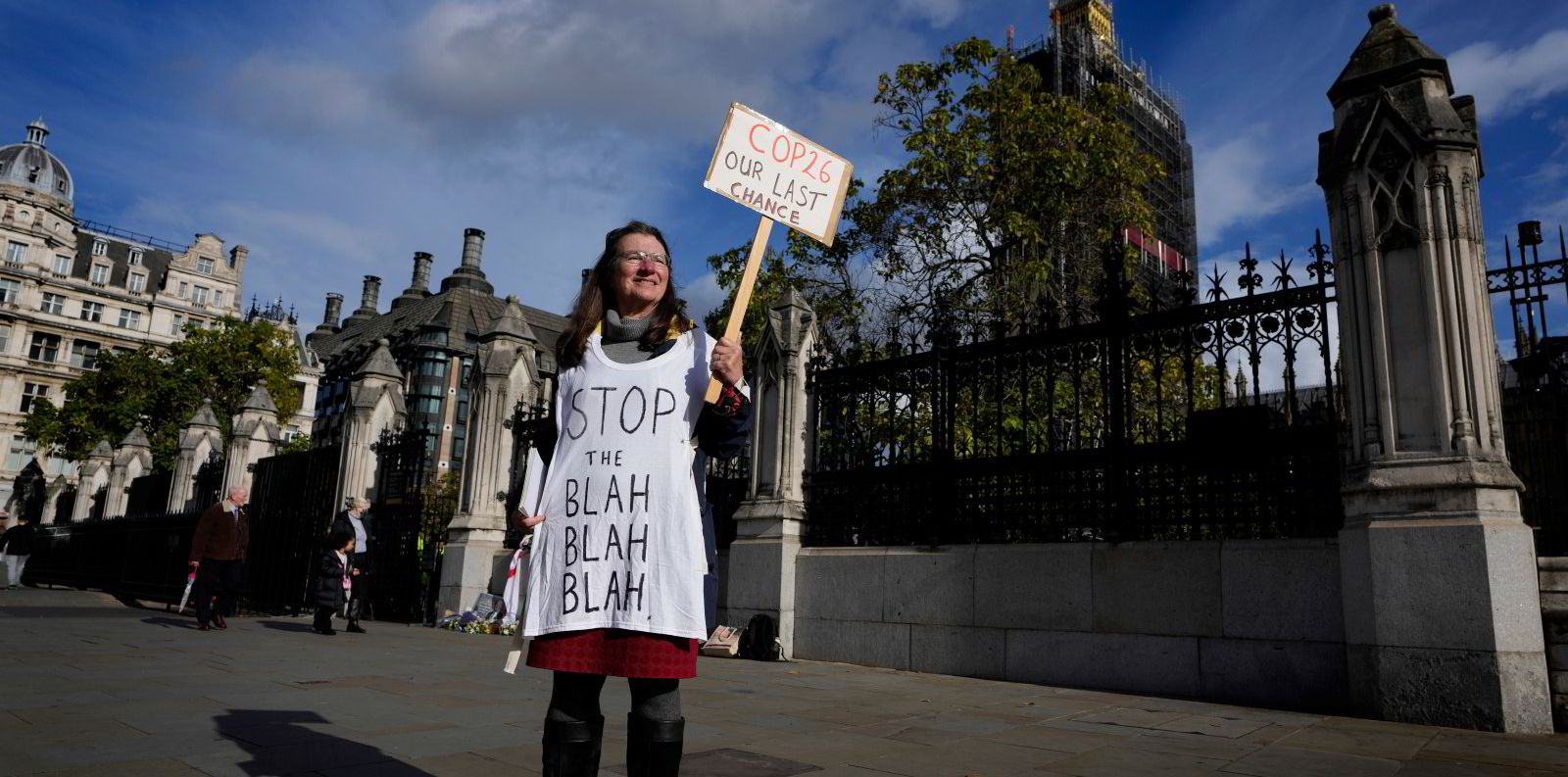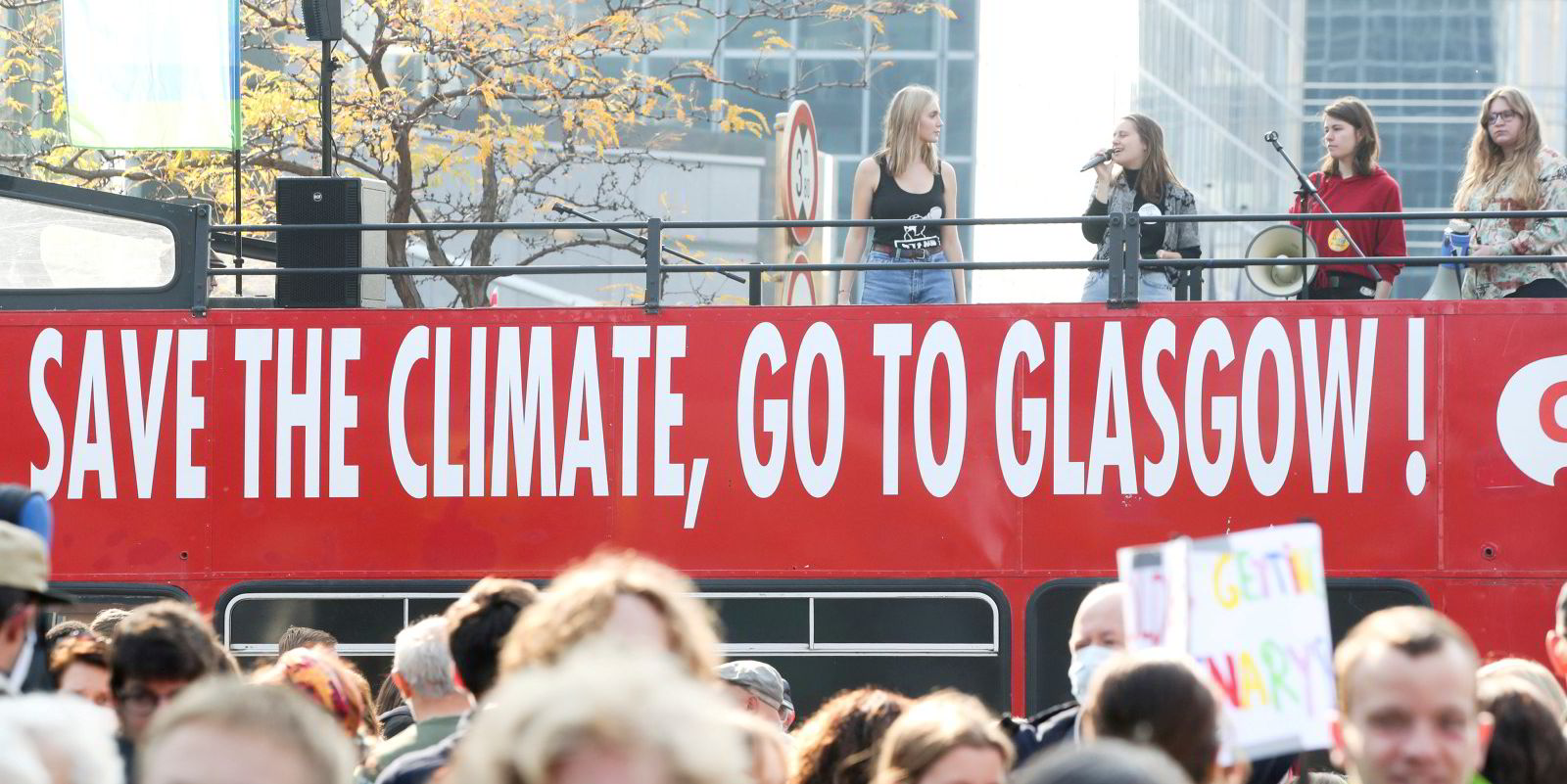Brexit has been blamed for a lot of things: queues at petrol stations, a shortage of truck drivers and missing menu items at chicken restaurant Nando's, to name a few.
Now, add one more.
Britain's 2020 exit from the European Union is facing fire for increasing carbon emissions from shipping ahead of a key global climate conference that has the UK as its host country.
The UK Trade and Business Commission, a cross-party grouping of members of parliament and business leaders who favour maintaining close trade ties with the EU, found that the loss of trade with the 27-nation bloc could increase annual CO2 annual emissions by 88%.
That amounts to 6.5m additional metric tonnes of the greenhouse gas per year, as a result of replacing trade with the EU to countries farther away.
"This would be a staggering increase in emissions — and one entirely driven by this government's ideological opposition to the European single market," said Green Party parliamentarian Caroline Lucas, who chair the session of the commission that yielded the report.
The commission, which was set up to push for a better trade deal with the EU, said the findings cast doubt on the government's commitments to tackle climate change.
The group based its estimate on the 22.1% drop in trade of goods between the UK and EU during the first quarter of this year compared to the same period of 2018. Trade between the UK and other nations dipped only 0.8% during the period.
The added carbon footprint related to Brexit is equivalent to about 44,000 flights between London and New York per year, the commission said.
Glasgow calling
The report comes just two days before the UK hosts the COP26 climate conference in Glasgow, and weeks before the International Maritime Organization is poised to discuss its next steps in reducing shipping's carbon output at a key committee meeting in November.
TradeWinds has contacted the UK government for a response to the report.

"The UK's climate change and environment policies are some of the most ambitious in the world, reflecting our commitment as the first major economy to pass new laws for net zero emissions by 2050," a government spokesman told The Independent, a UK newspaper.
"Our independent trade policy takes a bold, comprehensive approach to environmental issues and we continue to work with our partners to tackle climate change — including at Cop26 next month."
The commission, however, pointed to statements by Brexit advocates, of which Prime Minister Boris Johnson was a leading voice, promoting the idea that the UK would benefit from more trade with the wider world.
"The farther you need to move goods, other things being equal, the more emissions you create and so increasing our carbon footprint is pretty much baked into increasing trade with countries like Australia and the US over countries in Europe," Professor Paul Ekins, director of the University College London's UCL Institute for Sustainable Resources, said in a statement released by the commission.
"To avoid this outcome, the government should look at ways to improve trading arrangements with EU nations."





